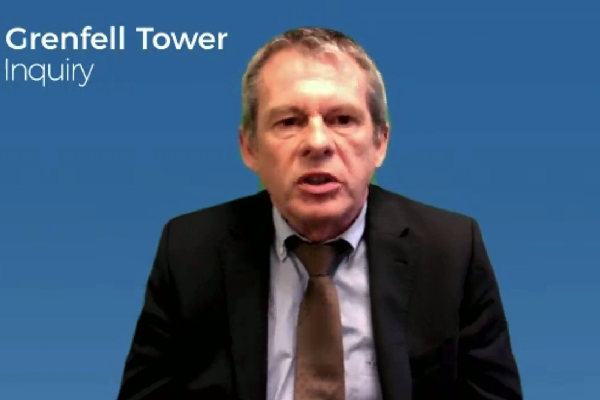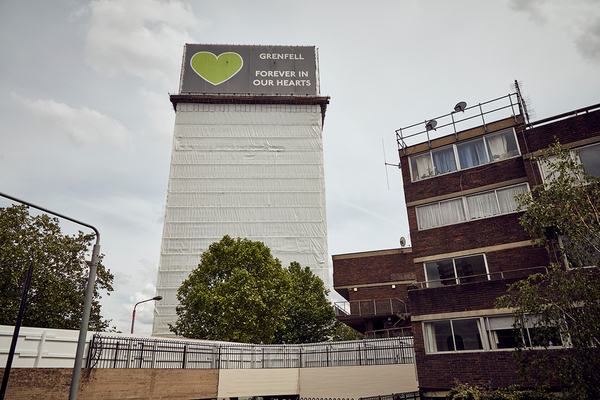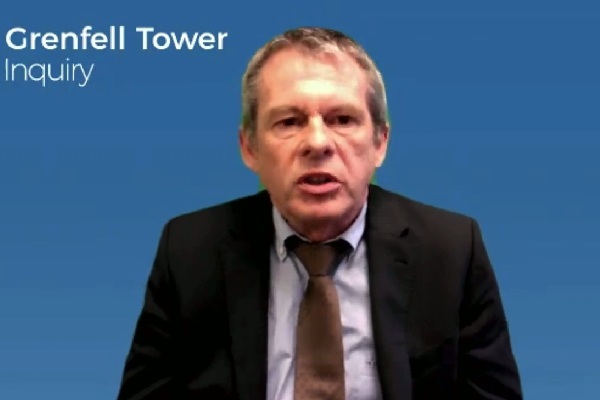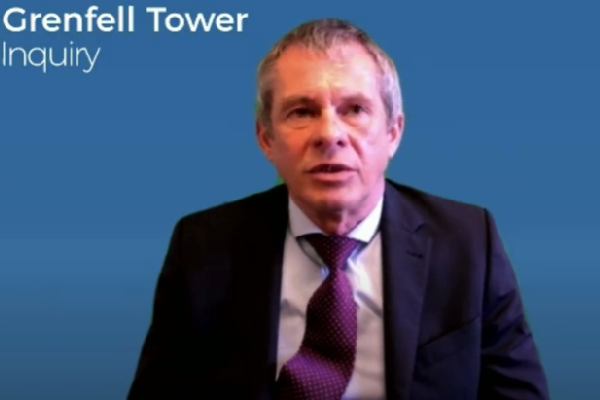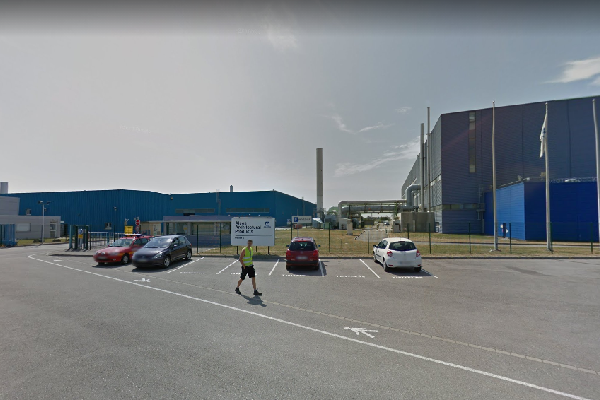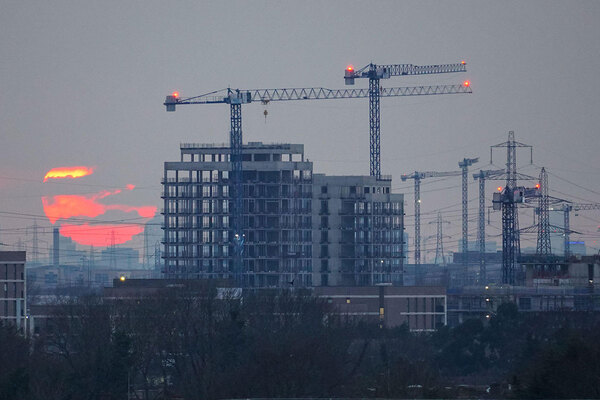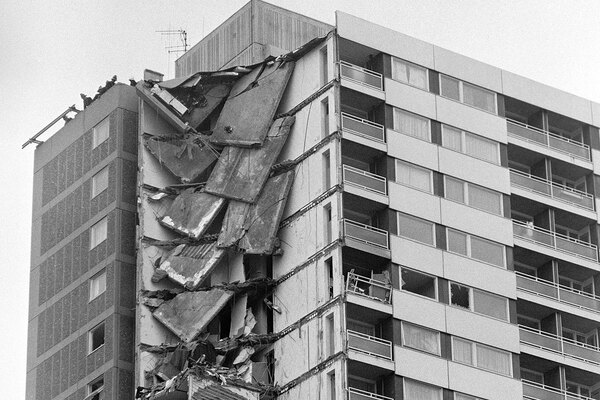Grenfell cladding boss denies fire test failure was Arconic’s ‘deadly secret’
The president of the firm which sold the highly combustible cladding panels used on Grenfell Tower today denied that a 2005 test in which it failed “spectacularly” was Arconic’s “deadly secret”.
Today Claude Schmidt was grilled about testing on the ‘Reynobond PE 55’ panels which showed a startling difference in fire performance when bent into a ‘cassette’ form so that it could be hung on a building on rails.
This test on the aluminium composite material (ACM) panel – two thin aluminium sheets bonded with a core of pure polyethylene, a plastic which burns like petrol in a fire – showed it burned 10 times as quickly and released seven times as much heat and three times as much smoke when shaped in this way.
But instead of warning customers, staff at AAP SAS (the French arm of cladding company Arconic) dismissed the test as a “rogue result” and continued to sell the product using the classification it achieved when tested as a flat panel.
The result was never disclosed to certification body the British Board of Agrément (BBA), which published a certificate assuring UK customers that the panel met a much higher standard from 2007 onwards.
“Do you accept that if the Grenfell Tower fire had never happened, no one would have known about the failed test 5B?” asked counsel to the inquiry Richard Millett QC.
“Yes,” replied Mr Schmidt, speaking through a translator.
“Do you accept that test 5B was Arconic’s deadly secret?” asked Mr Millett.
Mr Schmidt said he did not. “The product that was sold was not dangerous in itself, it did have some risks which were dealt with differently in different countries… there are many things we use every day that give rise to some risk,” he said.
Grenfell Tower was fitted with Reynobond PE 55 in cassette form because the planning committee in Kensington and Chelsea preferred the aesthetic appearance and feared the rivets may act as “rust attractors”, the inquiry has heard previously. They had no way of knowing about the additional fire risk.
The inquiry heard today that Arconic commissioned the tests on its product in 2005 to newly introduced European standards, which were set to be adopted across the EU.
While the riveted panel obtained a strong enough result to obtain a ‘Class B’ – acceptable for many European markets – the cassette fixed panel performed drastically worse.
Test data shown to the inquiry for the first time today revealed that this test was halted after 14 minutes due to the extent of the fire.
The cassette panel’s ‘fire growth rate’ was 1009.2 watts per second, compared with 105.5 for the riveted panel; it released 59 megajoules of heat compared with 7.8 for the riveted panel; and it scored a smoke release index of 16.6 compared with 5.7.
Mr Schmidt – who took on the senior role at AAP SAS in 2007 after having previously worked in a different arm of the business – said he was not made aware of the test result.
“Do you accept that the cassettes, according to this test 5B, performed spectacularly worse than the rivet test?” asked Mr Millett. “Yes,” replied Mr Schmidt.
The inquiry then saw the witness statement of Claude Wehrle, a senior technical figure at AAP SAS, who claimed he believed that because the test had not been classified, “it does not reflect the product’s real fire performance”.
However, Mr Millett pointed to a line in the report which said that while the results were not usable for a classification, “they give an idea of the fire behaviour of the product”.
“What these words mean is not that those results can be ignored, it’s that the results cannot be ignored, do you accept that?” he asked.
“That’s not the way that I interpreted it, it simply says the results can’t be used,” said Mr Schmidt.
Mr Wehrle’s statement added that given a general expectation in the industry that cassette panels would perform better than riveted, “the technical team and management were all puzzled” and “the company had no reason to suspect this was anything other than the rogue result of a standard classification test”.
“What was the point in testing a cassette system if in the end you were going to prefer the expectation to the actual result?” asked Mr Millett.
“I don’t know,” replied Mr Schmidt.
Inquiry chair Sir Martin Moore-Bick intervened to ask if the failure to confirm the result with further testing was “irrational and irresponsible”. “Yes, as I said, I think extra tests should have been carried out,” replied Mr Schmidt.
The inquiry also saw an email from Mr Wehrle, sent in June 2016, which said the Class B result on the riveted panel had been obtained “by ‘arranging’ the system to pass”.
“Do you agree that it looks from this that Reynobond 55 PE’s Class B was not honestly obtained?” asked Mr Millett.
“Yes,” replied Mr Schmidt. Mr Wehrle is one of the witnesses who is refusing to attend the inquiry to give evidence himself.
Earlier, Mr Schmidt was asked if he agreed that a certificate published by the BBA and circulated to UK clients, including the team that refurbished Grenfell Tower, contained a “false statement” by not distinguishing between cassette and riveted panels.
He was also asked about testing of the panels to Class 0 – a British standard which only tests the product rather than a full system. Building guidance in England and Wales permitted cladding products on high rises that met either Class 0 or Euroclass B.
Reynobond 55 PE had never been tested to Class 0, but another product – Reynobond 160 PE – was certified as passing one of these tests by Warrington Fire in 1997.
Mr Schmidt today claimed that the two products were “identical” and the name change was simply a rebrand to reflect that Reynobond 55 was made in France while the other product was made in the US.
He said he had “no answer” as to why fresh testing was not done on the French product and accepted it would have been a “good idea”.
He told the inquiry that “regulatory differences” were what made the polyethylene-cored product popular in the UK, compared with other countries, such as Poland, which set higher standards.
The UK government was repeatedly warned from 1997 onwards to remove the Class 0 standard from its guidance but did not act, amid a climate of reducing regulatory burdens on business.
The Grenfell Tower Inquiry continues tomorrow.
Sign up for our fire safety newsletter
Already have an account? Click here to manage your newsletters
